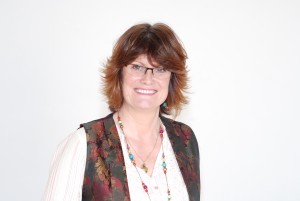Say hello and wave goodbye!
About the author
Our guest authors are what make PR Place such a vibrant hub of information, exploration and learning.

This is an article by Jane Crofts
When I first ‘retired’ some 9 years ago I left full time salaried PR work with no idea of what I might do next.
I thought about consultancy but my heart was not in it.
Then by chance an email popped into the inbox from the University of Lincoln asking if I fancied doing a ‘bit of lecturing’ – I had often done visiting speaker slots over the previous 10 years.
So I toddled along for a chat on a Thursday and by Monday found myself in a seminar room at 9am to meet my first group of final level students to discuss the delights of crisis management counselling.
I can recall my first words at 9am…. “Hello, my name is Jane and it’s my first day. Bear with me and I hope to get the hang of this!”
I got the hang of it and I really enjoyed it!
The PR programme was based in the Business School at that time alongside its close relations of advertising and marketing; there was a wide range of combinations students could study as well as the single honours programme.
As ever in large organisations change was constant and the single honours programme went on hold and we focused on the joint programmes. Then another change came along and PR moved to the then School of Journalism where the single honours programme was re-vitalised and the only joint on offer was with journalism.
It now sits in the School of English and Journalism but still does not have its own ‘credit’ in the title. Oh, and the Business School are also making noises about some closer working across the low walls of the Colleges and Schools here at Lincoln. What goes around comes around.
It is now time for me to retire again.
I am leaving on a high, the new courses have settled in well – the Guardian ranked us in the top five schools (the four above only offer journalism) and I feel I have done a reasonable job recently as course leader – oh yes, that ‘bit of lecturing’ turned into quite a bit more over the 9 years although I stubbornly refused to return to fulltime employment!
Regrets
I regret that I never embraced the research agenda – something that PR lacks if it is to become a robust subject in universities.
I focused on what I knew I could do well – linking my practice with the theoretical base of a degree. It took me a while to get my head round it not being a training course for would be PR practitioners.
At university the course has to take account of the theory, the thinking, the reading about communications and the manipulation of the masses – is that what PR is?
Yes, we need the students to be employable so my style was to relate the assessments to both theory and practice: encourage work experience, create opportunities for work experience, have a placement year; but never to lose sight of the undergraduate experience of a robust dissertation as the pinnacle of their studies.
I feel I have succeeded if I see students heading across the dais at graduation who I know are filled with curiosity, take nothing at face value and who are eloquent in their arguments.
Some will be the back room workers; some will be the prima donnas of PR. Some will become teachers, nurses, probation officers, who knows? I really do not mind so long as they are happy in the end and remember the ‘Granny Test’ – can you look Granny in the eye and tell her what you did today?
Where does PR belong?
A burning question for many colleagues is where should PR sit – Business School or Journalism School?
Working in both I have seen advantages and disadvantages on both sides. In a Business School the art of writing good copy is neglected and the chance to experience TV and Radio first-hand is limited. In a School of Journalism the business skills are diluted in favour of telling a story.
I think universities need to grow again in a different way and ditch their silos of academia and allow much more working across low walls – as promised at Lincoln.
In a Business School PR gets confused with marketing and in a School of Journalism they think PR is just about writing news releases.
PR needs input from business, journalism, media and I also believe philosophy, psychology and politics need adding to the mix. It is a diverse profession that needs a diverse approach and it needs to develop strategic thinkers for both the public and private sector. It also needs to get to grips with some decent research – especially into robust evaluation and measurement to give it that rightful place in organisational strategy.
As to the future – I really wish the practice of PR well. It has its own demons to lay to rest – journalists do not make the best practitioners – Campbell, Coulson, Clifford.
The two professional bodies need to accept there is only room for one, do the job properly for existing practitioners and support the talent coming through from the universities.